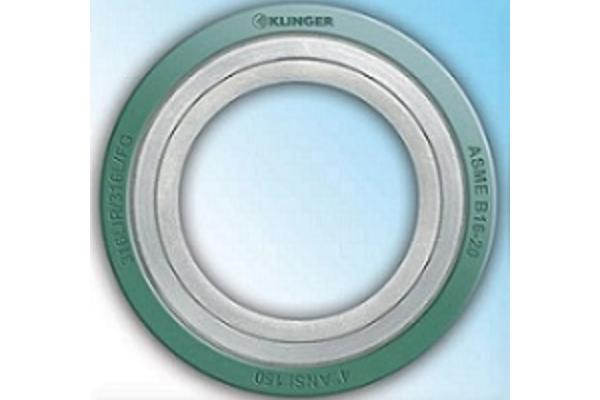Maxiflex spiral wound gaskets have the ability to recover under the action of fluctuating loads caused by process fluid pressure and temperature changes, flange face temperature variations, flange rotation, bolt stress relaxation and creep. The gasket sealing element consists of a pre-formed metallic winding strip with layers of a softer, more compressible sealing material which, during compression, is densified and flows to fill imperfections in the flange surfaces. The metal strip holds the filler giving the gasket mechanical resistance and resilience.
Product Advantages
Maxiflex spiral wound gaskets combine the ease of sealing a graphite, PTFE or mica filler with the strength afforded by a specially profiled metallic, spring-like reinforcement. The sealing element is manufactured by interleaving plies of alternating metallic winding strip and filler to create a gasket that is robust and easy to install. Maxiflex spiral wound gaskets create a very tight and reliable seal suitable for high temperature and pressures and can be manufactured to suit standard flanges and also custom-designed vessels.
Maxiflex gaskets are capable of giving an excellent seal over a wide range of flange surface finishes, but as a general guide we suggest under general duties, a flange surface finish of 125-248μin. (3.2-6.4 μm).
MRO (Maintenance, Repair, and Operations) keeps a facility up and running safely. Klinger-brand gaskets can be found in heat exchangers, pipe flanges, manways, pumps, valves, and stacks in the following industries:
- Oil and Gas
- Chemical Process
- Infrastructure
- Power Generation
- Transportation
- Pulp and Paper
- Food and Beverage
OEM (Original Equipment Manufacturer) gasket applications traditionally have stringent specifications volume production requirements. The Engineering team at Thermoseal provides application engineering support for a range of applications including:
- Compressors
- Internal Combustion Engines
- OTR Diesel Engine and Transmission
- Aerospace
- Railcar







